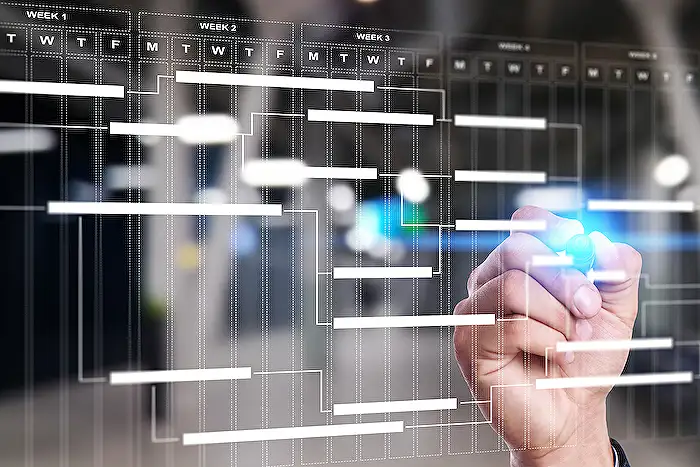Copilot Studio: MCP server in Copilot Studio
MCP server, Copilot Studio, HR agent, .NET, Microsoft 365 Copilot, Extend Microsoft 365 Copilot, Knowledge sources overview
Key insights
- Model Context Protocol (MCP) acts as a standardized protocol within Copilot Studio, allowing AI agents to connect securely and flexibly with external data, APIs, and tools in real time.
- MCP servers can be created using Microsoft’s GitHub templates, deployed on Azure, and then integrated into Copilot Studio through custom Power Platform connectors, ensuring compliance and enterprise-grade security.
- The protocol supports dynamic discovery of new actions and capabilities at runtime, reducing manual updates and making AI agent integration more scalable and efficient.
- MCP leverages the Power Platform connector infrastructure for strong governance features like data loss prevention, multi-factor authentication, VNet integration, and secure action exposure.
- Recent enhancements include general availability of MCP in Copilot Studio (as of May 2025), improved tool listing UI, support for streamable data transfer, better traceability, diagnostics, reliability improvements, and performance optimizations.
- Best practices now emphasize deploying MCP servers with security measures such as segmentation, web application firewalls, API management solutions, encryption protocols, and following Microsoft’s AI-Gateway guidelines for safe operations.
Introduction to MCP in Copilot Studio
Microsoft’s recent YouTube video explores the integration of the Model Context Protocol (MCP) within Copilot Studio, highlighting its transformative impact on AI agent connectivity and enterprise automation. This presentation, led by Paolo Pialorsi from Microsoft, demonstrates how developers can leverage MCP to build powerful HR agents that consume .NET-based MCP servers published over HTTP. The session is part of the broader Copilot Developer Camp initiative, which aims to familiarize developers with the expanding capabilities of Copilot Studio.
As organizational needs evolve, the demand for flexible and secure integration across various tools and data sources grows. In response, Microsoft’s MCP framework acts as a universal adapter, empowering AI agents to seamlessly connect with diverse APIs and knowledge bases without sacrificing security or compliance. The tradeoff, however, lies in balancing dynamic extensibility with robust governance—a challenge Microsoft addresses through its Power Platform connector infrastructure.
The Role and Advantages of MCP
At its core, MCP serves as a standardized protocol that simplifies the way AI applications access external resources. Agents within Copilot Studio gain the ability to connect to both internal and third-party APIs dynamically. This means organizations can introduce new tools or update existing ones without major disruptions or costly manual interventions. Additionally, MCP servers offer flexible action capabilities and runtime tool discovery, reducing maintenance overhead.
The protocol integrates directly with Copilot Studio via Power Platform connectors, ensuring enterprise-grade security, data loss prevention, and multi-factor authentication. This approach not only enhances compliance but also maintains agility—two factors often at odds in enterprise environments. While the flexibility is a significant benefit, organizations must remain vigilant to ensure that governance policies keep pace with the increasing number of integrations.
Deployment Workflow and Practical Use Cases
Deploying an MCP server within Copilot Studio follows a structured process. Developers begin by creating an MCP server using Microsoft’s GitHub template and deploying it as an Azure Web App. This server then becomes accessible through a custom Power Platform connector, which securely exposes its functionality to Copilot Studio agents. Once integrated, these agents can invoke server-side tools and actions dynamically, responding to user queries or workflow triggers.
For instance, the video demonstrates building an HR agent capable of fetching live data from an MCP server, such as retrieving employee information or automating HR-related tasks. Microsoft further supports the developer community with labs and templates, streamlining the creation and deployment process. Nevertheless, the challenge remains in ensuring that custom connectors are developed with careful attention to security, especially as more sensitive business processes are automated.
Recent Enhancements and New Features in 2025
As of May 2025, MCP’s integration with Copilot Studio has moved to general availability, signaling its readiness for production environments. Microsoft has introduced several enhancements, including a redesigned tool listing UI that provides clear visibility into available MCP server tools at runtime. This makes it easier for administrators and developers to manage and monitor integrations.
Moreover, the protocol now supports streamable data transfer, improving efficiency for scenarios involving large or real-time data exchanges. Quality improvements, such as reliability enhancements and bug fixes, have also been rolled out, making deployments smoother and more robust. Enhanced traceability features allow organizations to pinpoint exactly which tools are invoked and when, aiding in diagnostics and operational transparency.
Security and Governance Considerations
While MCP’s dynamic capabilities open new possibilities, they also introduce complexities around security and governance. Microsoft emphasizes the importance of secure architectures—recommending segmentation, the use of Web Application Firewalls, API management, and encryption. Adherence to Microsoft’s AI-Gateway guidance is also encouraged to ensure that sensitive data and business logic remain protected.
Ultimately, the balance between innovation and control is a recurring theme. Organizations must weigh the benefits of rapid integration and automation against the need for stringent oversight. As MCP adoption grows, best practices in deployment and monitoring will become increasingly vital to safeguard enterprise systems.
Conclusion
Microsoft’s YouTube video provides a comprehensive overview of how MCP fundamentally enhances Copilot Studio’s extensibility and security. The protocol’s evolution represents a significant step forward in enabling AI agents to interact with external systems in a controlled, scalable manner. While the benefits are clear, success depends on careful implementation and ongoing vigilance to maintain governance in the face of expanding integration possibilities.
As Copilot Studio and MCP continue to mature, enterprises should stay informed about best practices and emerging features to fully leverage this powerful combination for digital transformation.

Keywords
MCP server Copilot Studio integration Copilot Studio MCP consumption how to use MCP server with Copilot Studio Copilot Studio tutorial MCP server setup in Copilot Studio best practices for MCP in Copilot Studio
